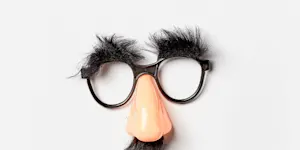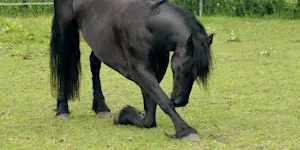What Makes This Word Tick
"Churlish" is one of those words that carries a touch of drama and color. It draws its flair from describing someone who's a bit rude or lacks the graceful manners society often appreciates. It's not simply about being disagreeable—being "churlish" suggests a certain bluntness, a refusal to play by the social niceties that keep soirees and family gatherings civil.
If Churlish Were a Person…
Picture Churlish as that one neighbor who refuses to wave hello, even when you catch their eye from across the street. They might mutter a greeting under their breath—or not at all. It's not their goal to ruin your day; they're just not interested in pleasantries.
How This Word Has Changed Over Time
Once upon a time, "churlish" merely meant rustic or belonging to a peasant—the word "churl" used to refer to a low-ranking free man in the medieval social hierarchy. Over the centuries, it took on more negative connotations, transitioning from a mere description of status to a judgment of behavior and personality.
Old Sayings and Proverbs That Use Churlish
While "churlish" itself might not pop up in old sayings, its spirit is alive in something like, "You catch more flies with honey than with vinegar," reminding us that kindness generally leads to better results than a sour disposition.
Surprising Facts About Churlish
Did you know that "churl" was originally derived from the Old English "ceorl," which simply meant man or husband? Its evolution into meaning something more disagreeable is a classic case of language shifting with social mores and values.
Out and About With This Word
"Churlish" comes in handy when describing someone who insists on using their cellphone in a movie theater or who loudly criticizes the soup at a dinner party—that person who deliberately ignores the unwritten rules of politeness.
Pop Culture Moments Where Churlish Was Used
While it may not refer to a blockbuster movie moment, the essence of "churlish" can be seen in sitcoms featuring characters like Frank Barone from "Everybody Loves Raymond." Always a bit gruff, he's not always impressed by what pleases most people.
The Word in Literature
In literary settings, "churlish" might describe a character whose lack of courtesy sets them apart, perhaps an uncompromising detective in a mystery novel or an edgy anti-hero whose rough edges offer both challenges and charm.
Moments in History with Churlish
Think of America’s Wild West or medieval England—a backdrop rich with individuals who might be deemed "churlish" by today’s standards. Cowboys refusing to tip their hats or peasants giving surly responses to knights could all embody the term’s demeanor.
This Word Around the World
In other languages, equivalents of "churlish" often relate to rudeness or unrefined behavior. In French, one might use "grossier," which similarly implies a lack of polish and an overabundance of bluntness—a universal concept, it seems.
Where Does It Come From?
Etymologically speaking, "churlish" has roots in the fabric of old social structures. Starting from "ceorl" in Old English, it wound its way through Middle English as societal distinctions and behaviors reshaped its meanings.
How People Misuse This Word
Sometimes "churlish" is mistakenly used to mean anything unpleasant or inconvenient. But it specifically pertains to the realm of manners and interactions—its essence is in rudeness and surliness, not mere inconvenience.
Words It’s Often Confused With
Rude: While similar, "rude" is more general; "churlish" implies an old-school, earthy brusqueness.
Uncouth: Carries a sense of lack of sophistication or polish, akin to being churlish.
Surly: Another kin with a focus on moody, ill-tempered gruffness rather than interference with etiquette.
Additional Synonyms and Antonyms
Synonyms for "churlish" include boorish, unmannerly, and gruff. Antonyms would be courteous, polite, and genteel, where the emphasis is on adhering to social niceties.
Want to Try It Out in a Sentence?
"Despite her churlish remarks at the gala, we all knew deep down she was just a grumpy spirit who appreciated a good laugh."
















